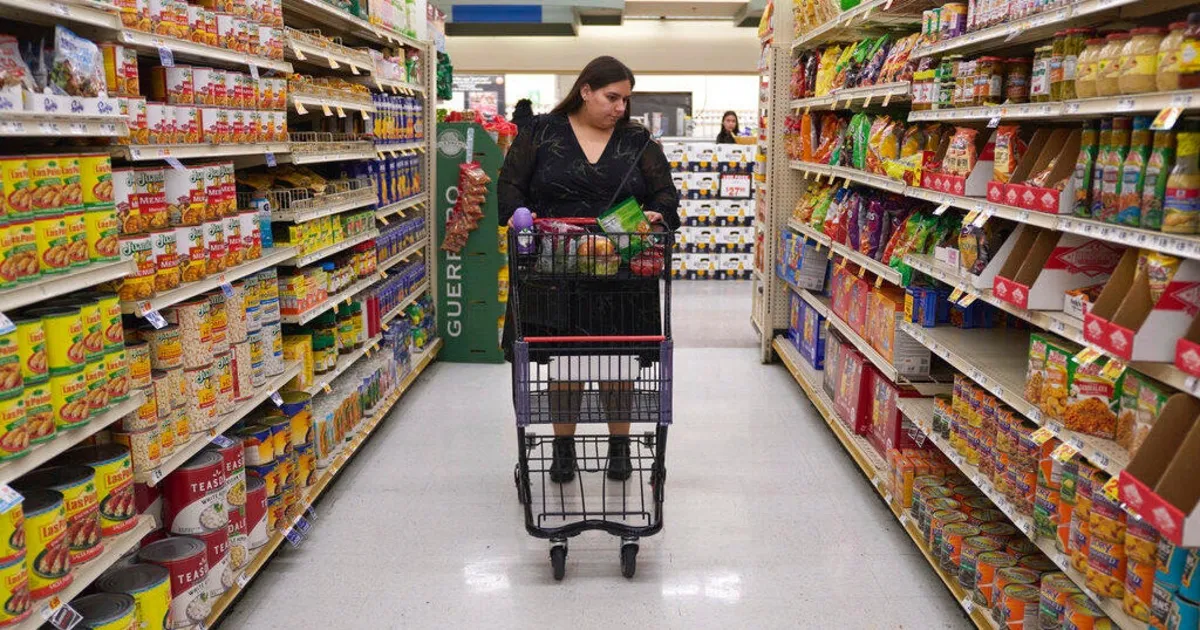
Approximately 42 million Americans rely on food stamps distributed monthly through electronic benefit transfer (EBT) cards. However, on November 1, this crucial assistance is set to abruptly stop due to the ongoing U.S. government shutdown, leaving many households scrambling to secure food for their families. Individuals enrolled in the Supplemental Nutrition Assistance Program (SNAP) have expressed their concerns to CBS News about the tough financial decisions they may soon face.
Kasey McBlais, a 42-year-old single mother from Buckfield, Maine, is one of those affected. With two children to care for, she plans to delay payments on her electric and credit card bills to ensure her family can afford food. "Now we'll have to prioritize which bills we can pay and which can wait," said McBlais, who earns around $600 a month through SNAP benefits. "My children won't go hungry."
The suspension of these vital food assistance benefits comes at a time when Democratic and Republican lawmakers continue to exchange blame regarding the government shutdown, which has now reached the status of the second-longest funding lapse in U.S. history. The U.S. Department of Agriculture (USDA), responsible for funding the SNAP program, issued warnings earlier this month about insufficient funding to cover full November benefits if the shutdown persists. Local governments have begun posting notices about the potential interruption of payments.
The USDA stated in a memo that "the well has run dry," confirming that there would be no SNAP benefits issued on November 1. While Democratic lawmakers have urged the USDA to utilize contingency funds to cover most of the upcoming month's benefits, a memo that surfaced on Friday clarified that these contingency funds are not legally available for regular benefits, as they are designated for disaster relief.
This means that starting November 1, approximately $8 billion in monthly SNAP payments will be halted, impacting one in eight Americans enrolled in the program. Each recipient typically receives around $187 per month on a prepaid card to assist with grocery expenses.
Some states, including Louisiana, Vermont, and Virginia, have pledged to continue disbursing SNAP benefits even in the face of federal suspension. New York recently announced a commitment of $30 million in emergency food assistance and additional support for food banks. However, a USDA memo indicated that states would not be reimbursed for providing temporary food aid, raising concerns about the sustainability of these state-level efforts.
Sharlene Sutton, a 45-year-old mother of four from Dorchester, Massachusetts, is exploring food banks as a potential solution if her $549 in monthly SNAP benefits is cut off. "I was freaking out because I'm like, 'Oh my god, now I don't have a job,'" she shared with CBS News. "It's about the kids. Like, where am I going to get food from?"
Experts warn that food banks alone cannot compensate for the potential loss of $8 billion in monthly food assistance. John Sayles, CEO of Vermont Foodbank, emphasized that the charitable food system lacks the resources to absorb the surge in demand that may arise from the SNAP suspension. Food banks are already experiencing an influx of calls from concerned SNAP recipients, and long lines may become commonplace if the shutdown continues.
The temporary halt of $8 billion in monthly food aid could also have broader economic implications, affecting local businesses such as grocery stores and farm stands. Each dollar in SNAP benefits generates an economic return of $1.60, illustrating the multiplier effect where money circulates within the local economy, supporting spending, jobs, and growth. "SNAP is the foundation of economic support for a lot of food retailers," noted Kate Bauer, an associate professor at the University of Michigan.
While SNAP is intended to provide supplemental aid for grocery budgets, many families depend on it as their primary source of income for food. Experts highlight that even a brief disruption in benefits can have immediate and severe consequences for those living paycheck to paycheck.
The loss of SNAP funding poses a significant threat to some of the most vulnerable populations in the U.S. According to the Center on Budget Policy and Priorities, two-thirds of food stamp recipients are children, seniors, or individuals with disabilities. For McBlais, the issue transcends politics; it's about ensuring families can afford to eat in an economy where many already struggle to cover basic expenses like rent and utilities. "Everybody needs food — SNAP recipients are Democrats, Republicans, and everything in between," she stated.